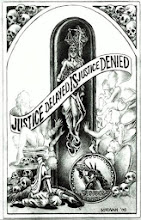
Private Eyes Try Getting Tough on Congress
By Shawn Zeller, CQ Staff
In the popular imagination, American private investigators are thetoughest of tough customers, impervious to saps, slipped Mickeys andseductresses.
But private eyes now fear they may be meeting their matchin Congress.
The detective industry says legislation aimed at redressing identitytheft and data breaches among companies collecting consumer data couldput it out of business. The proposal, by Senate Judiciary Chairman Arlen Specter , R-Pa., would erect barriers to ready acquisition of Social Security numbers -- and that, in turn, would enormously complicate missing-persons and witness-location work, two mainstays of the detective trade.
The bill (S-1332), which Judiciary panel Democrats Patrick J. Leahy of Vermont and Russell D. Feingold of Wisconsin are co-sponsoring, would bar the sale or purchase of any Social Security number without its holder's consent. Similar language is in a bill (S-1408) by Gordon H. Smith, R-OR, that the Senate Commerce Committee approved last week. (Story,p.2125)
In May, representatives of the National Council of Investigation and Security Services (NCISS) -- the private detectives "trade group" met with databrokers and agreed to lobby against provisions limiting investigators' ability to purchase the numbers. D.C. lobbyist Lawrence Sabbath is leading the charge.
Sabbath singlesout Rep. Pete Sessions , R-Texas, as the investigators' top ally.
Sessions also helped bounty hunters and bail bondsmen to get business-friendly provisions in a House immigration bill this February -even though that language later died in conference.
Large database companies, such as LexisNexis Group and ChoicePoint, sell partial Social Security numbers to private investigators, but not to the general public.
But the law surrounding their sale is murky, and some companies will sell full numbers to anyone.
Investigators also hired Washington PR man Joseph Ricci to boost their image in Washington.
Last month, the investigators hosted an "ID Fraud Summit" at a hotel in Washington with representatives from the Secret Service and the Justice Department.
Among the participants was John Stoll, who was convicted of child molestation in California and served 20 years in prison before a private investigator discovered information that exonerated him.
But consumer groups are mounting their own PR campaign in support of theSpecter bill.
They say uneven state licensing rules -- some don't require licenses at all -- are reason enough to prevent the investigators from buying the numbers. They also point to cases such as that of Amy Boyer, a New Hampshire woman killed in 1999 by a stalker who obtained personal information about her from an Internet-based firm run by a P.I. in Florida, or Rebecca Schaeffer, a television personality who was killed by a stalker who had purchased driver's license information from an unlicensed investigator from Arizona.
Without a law closing off much of the traffic in identity data, dvocates say the status quo will deteriorate. P.I.s "are virtually unregulated in too many states," says Edmund Mierzwinski of the U.S. Public Interest Research Group. "There's no question that there will be massive datamisappropriations."
Source: CQ Weekly


0 Comments:
Post a Comment
<< Home